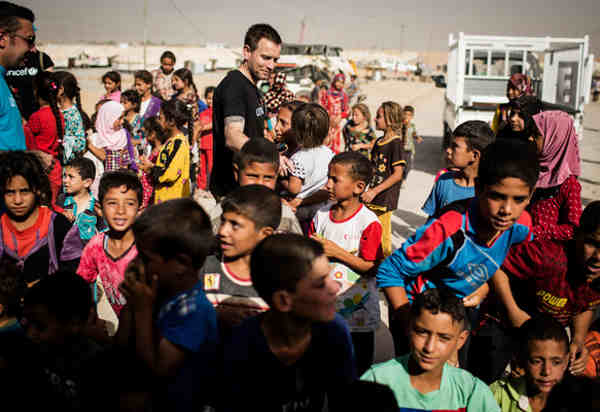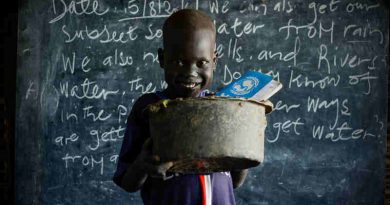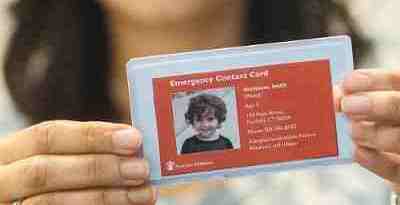Ewan McGregor Visits Displaced Children in Iraq

UNICEF Ambassador Ewan McGregor travelled to northern Iraq last week to see how the conflicts sweeping across Iraq and Syria are devastating children’s lives.
According to UNICEF, tens of thousands of children have been killed, injured, separated from their parents, forced to work, tortured and recruited into fighting.
During his visit McGregor travelled to Debaga camp where he met with families that have escaped brutal violence currently taking place in areas surrounding Mosul in the north of the country.
He also spent time with Syrian refugees and displaced Iraqi families in camps and communities around Erbil.
[ Also Read: UNICEF Disturbed Over India’s Child Labour Bill ]
The situation for children in Iraq is becoming increasingly desperate. Around 3.6 million children – one in five – are at serious risk of death, injury, sexual violence, abduction and recruitment into armed groups.
Many are being ripped from their families and forced to flee on their own, often making dangerous journeys and falling into the hands of traffickers.
“Children uprooted by conflict can find themselves alone, without family and in grave danger. No child should be alone. Many of the children I’ve met in Iraq have been forced to flee their homes, risking their lives on dangerous journeys and have been exposed to unimaginable horrors,” said McGregor.
[ Education Dilemma: Let Us Save the Lives of Our School Children ]
“The world is facing an unprecedented refugee crisis and we must do more to protect the extraordinary number of children who have been torn from their homes by violent conflict.”
This September world leaders will meet to discuss the global refugee crisis at two crucial summits in New York. UNICEF is urging leaders to be strong, compassionate and bold in their commitments to protect children on the move.
UNICEF is working to protect children across Iraq and Syria, delivering life-saving food, clean water and vaccines, as well as providing education and psychological support.
Photo courtesy: UNICEF






